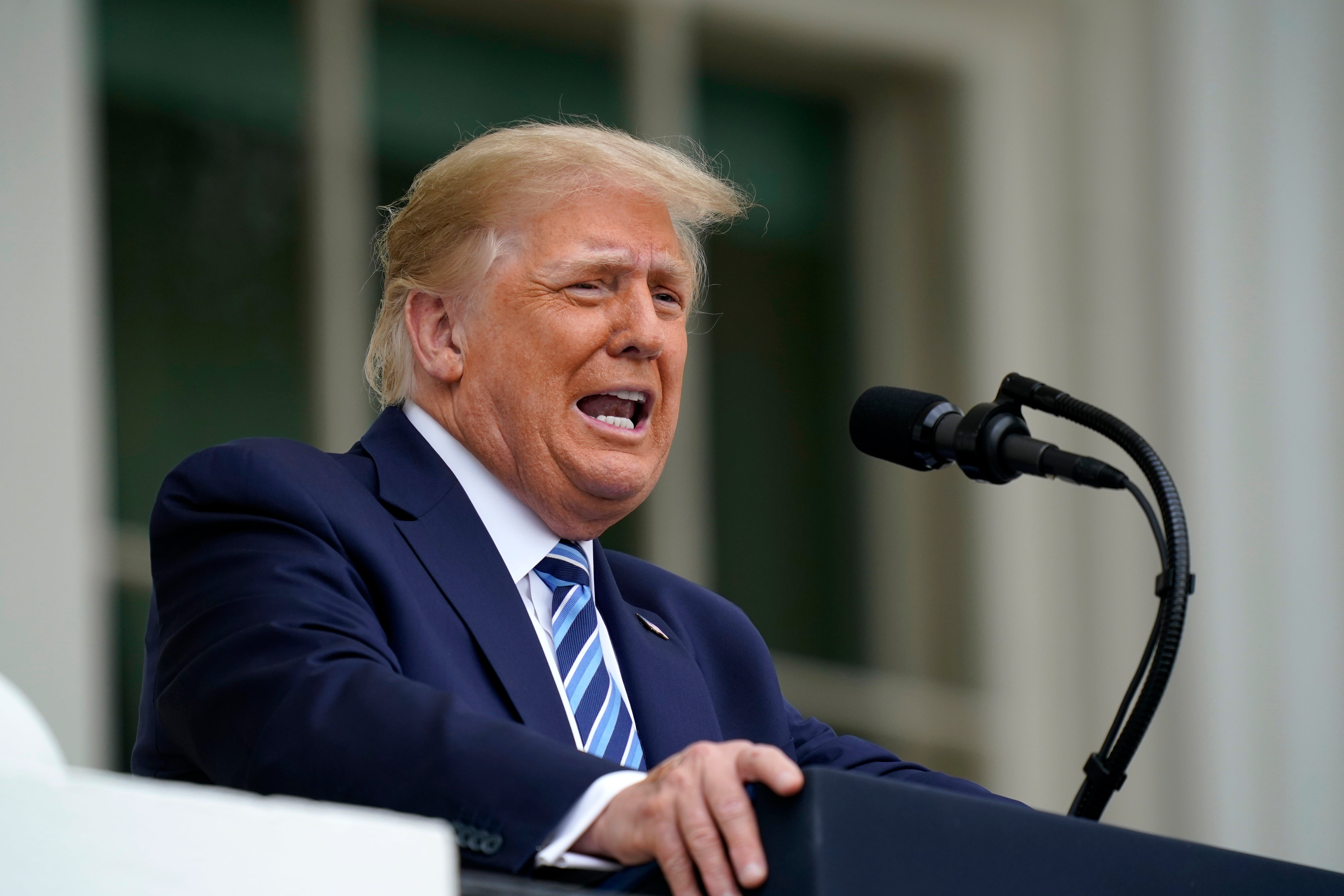Trump is trying to rush through an irresponsible Middle East arms deal before he has to concede
Former Defense Secretary Jim Mattis, who has publicly criticized President Trump, is now reportedly backing the UAE arms deal privately

The US Senate is due to vote this week on a bill to block the Trump administration’s proposed sale of high-tech drones, fighter jets and air-to-air missiles to the United Arab Emirates. Given their track record of human rights abuses and the volatile nature of the Middle East, it is vital that such a sale is not completed. As the sun sets over President Donald Trump’s tenure in executive office, he is trying to rush through as many problematic deals as he can, regardless of how potentially damaging to national security they are.
On November 19, a bipartisan group of senators, including Democrats Chris Murphy and Bob Mendez, as well as Republican Rand Paul, proposed four separate resolutions aimed at blocking Trump’s proposed deal with the UAE. Fearing the threat of selling highly destructive weapons to a country with a questionable human rights record, the senators cited the US Arms Control Act to potentially block the deal.
UAE has had a tenuous history of so-called self-defense, with various human rights abuses documented during years of war in Yemen and Libya. Despite coronavirus’s global impact, the United Nations continues to refer to Yemen as being “the world’s worst humanitarian crisis”. In part thanks to a Saudi-UAE coalition force, the Yemen war has now entered its sixth year, leaving 59 percent of Yemen without access to healthcare, 80 percent requiring humanitarian aid and 66 percent with nothing to eat. UAE has been involved in multiple airstrikes across Yemen and according to Human Rights Watch, the Saudi-UAE coalition have conducted 22,180 unlawful airstrikes to date.
Saudi-UAE coalition bombs have hit schools, hospitals, civilian homes, markets and mosques, killing innocent civilians. In 2018, a Saudi-UAE coalition airstrike hit a school bus, killing at least 26 children and wounding multiple others. Worryingly, the Saudi-UAE coalition has also recruited local forces linked with terrorism in their fight against Houthis in Yemen. As part of the process, the UAE and coalition partners have, in 2019, transferred high-end American manufactured weapons to these dangerous local groups, making the sale of more weapons to UAE all the more concerning.
The UAE has no need for more drones or F35s for self-defense. Their territory is already protected by the presence of a large US military base in Al Dhafra, as well as its own military, which is heavily funded. The current proposed deal, which amounts to $23.7 billion, would be the largest arms deal the UAE has conducted. To put the figure into perspective, the total federal UAE budget for the entire 2020 year was only $16.7 billion.
The Middle East is an unstable region, with regional geopolitical wars causing millions to continue to suffer. Arming nations actively involved in conflict with more powerful weaponry amounts to gross negligence akin to adding fuel to an open fire. As Senator Mendez stated, “Circumventing deliberative processes for considering a massive infusion of weapons to a country in a volatile region with multiple ongoing conflicts is downright irresponsible.”
Former Defense Secretary Jim Mattis, who has publicly criticized President Trump, is now reportedly backing the UAE arms deal privately. In his role with the Cohen Group — which has extensive partnerships with the defense industry — Mattis has been trying to save the Trump deal.
The deal is not the first time a president in the western world has sold weapons to questionable human rights abusers, President Macron of France has, in recent weeks, been caught up in a scandal over selling arms to Egypt's President Sisi, who has violently suppressed pro-democracy activists. Let us also not forget that Trump’s predecessor, Barack Obama, also completed an arms deal worth $115 billion with Saudi Arabia, despite the ongoing Yemen war.
Continued sales of weapons to those with a history of human rights violations sets a dangerous precedent. The US is effectively stating that human rights abuses and pervasive attacks can be ignored for the right price. Rushed decisions made by Trump during his last few weeks of power could have lasting consequences for the world if deals like these aren’t prevented from going through.
Join our commenting forum
Join thought-provoking conversations, follow other Independent readers and see their replies
Comments
Bookmark popover
Removed from bookmarks